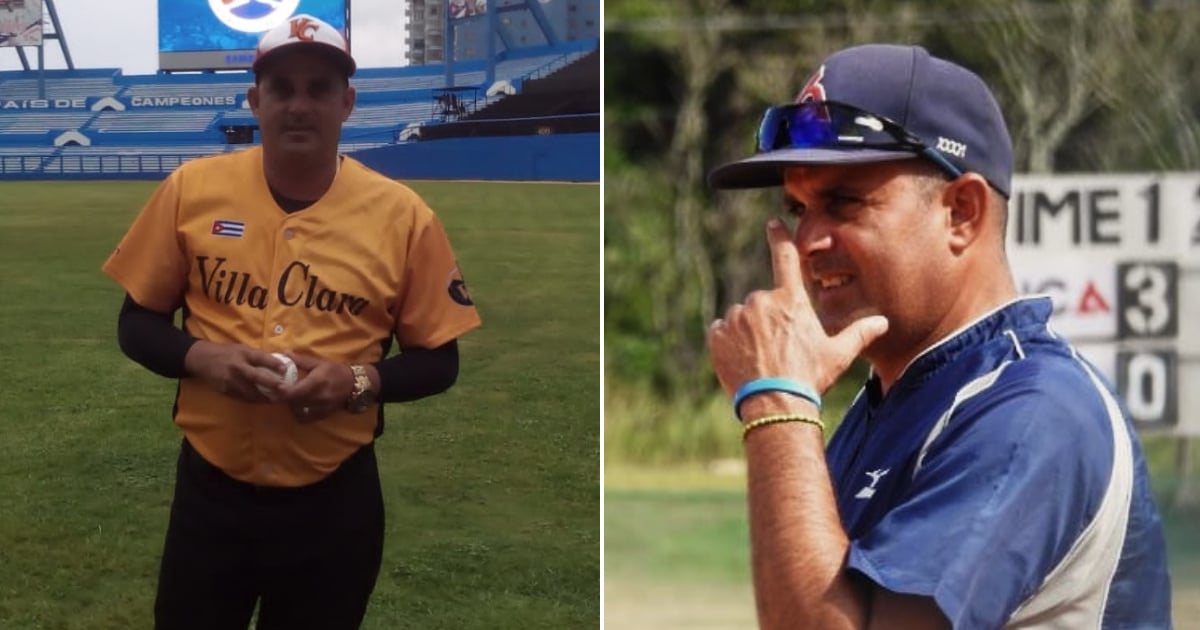Many times, the name Roidel Enríquez was mentioned in relation to the Cuban National Series and the Villa Clara team. The right-hander participated in eight seasons of Cuban baseball, serving both as a starter and a reliever. Later, his role as a coach earned him recognition, allowing him to work in the bustling city of Sao Paulo, Brazil.
"Indeed, I have been living in Sao Paulo since 2019; I arrived by crossing the border. I had a ticket to Guyana at that time, and from there, I took a small plane to the border. I entered Brazilian territory by land and was normally received by the immigration authorities who granted me legal access to the country. After two years, I obtained my permanent residency," Enríquez explained.
Adapting to a New Culture
Q: What do you do in Sao Paulo? Roidel Enríquez: "I am familiar with Brazilian-Japanese baseball, which is very different from Cuban baseball. Yes, Brazilian-Japanese! Here, all the baseball known is of Japanese descent. There are several clubs in this vast city, which have been expanding to other cities over the years, but for such a large country, the dissemination is limited. These clubs operate only on weekends, although they maintain their inter-club championships throughout the year. I am a coach at one of these clubs. I work directly with them in various categories on Saturdays and Sundays. During the week, I provide private training at some medical or engineering universities that also have their teams and competitions and need specialized coaches. Additionally, I have athletes interested in private lessons.
There is a training center where the most talented players, aspiring to sign contracts in the MLB, train daily with all accessible conditions. However, not everyone can afford the tuition at that academy. Q: Are talents lost, then? They could be, but now the Major League organization will sponsor some athletes with talent and less economic means. As you can see, baseball here operates very differently from Cuba. Firstly, it is not the country's main sport; soccer is the passion, the delirium, the national sport. There are even other disciplines more known and disseminated than baseball, such as basketball and volleyball. Here, parents and sometimes clubs pay for everything. You might be the best player on a team, but if your economic situation isn't favorable, you can't represent your country in an event. Sponsorships appear, but everything is very different from what we knew."
The Challenges of Exile
"You know me very well, and for me, my family is everything. You can imagine how I've been; it took four and a half years to visit my family in Cuba. Now I was able to get a tourist visa for my parents, who are here with me, applying for permanent residency. I am married to a Venezuelan woman who lives in another city. I have two daughters; the 20-year-old lives with her mother in Miami, and I hope the 17-year-old finishes high school so I can bring her too."
Q: Do you make a living solely from baseball? Of course not; baseball is one of my income sources here, but you can't live solely from baseball. It's a capitalist country where bills come from all sides. You always have to do other things to increase your income. I have done things I never imagined I would do, but that doesn't matter if you manage to meet your needs and now those of my parents."
Reflecting on Cuban Baseball
Q: What was your last participation in Cuban baseball? After my retirement, I joined as a coach. In this role, I bid farewell with the Villa Clara team under Eduardo Paret in 2019 when we lost the final against Las Tunas.
Q: How do you see the current state of Cuban baseball? It's embarrassing to see baseball games in Cuba with empty stadiums; the quality is nowhere near what it was in my time, let alone before my era. The migration of players is hitting us from an early age. They don't want to do anything to try to retain our players a bit longer. We know that everyone's dream is to compete at the highest level and obtain benefits for themselves and their families. We can't pretend that everyone in Cuban baseball is the same. Players worldwide, in any league, earn based on their performance. Not everyone can earn the same or have the same benefits. That has to be earned, so the newcomer strives to improve and the established player doesn't slack off. We must adapt to the modern world and leave behind outdated thoughts.
Frequently Asked Questions about Roidel Enríquez and Cuban Baseball
Here are some common questions and answers about Roidel Enríquez's career and the current state of Cuban baseball.
How did Roidel Enríquez adapt to life in Brazil?
Roidel Enríquez adapted to life in Brazil by working as a baseball coach in Sao Paulo. He has been living there since 2019 and has obtained permanent residency. He coaches various baseball clubs and provides private training at universities.
What challenges does Cuban baseball currently face?
Cuban baseball faces challenges such as empty stadiums, declining quality, and the migration of players from an early age. The sport needs to adapt to modern times and provide better incentives to retain talent.
What role did Roidel Enríquez play in Cuban baseball?
Roidel Enríquez participated in eight seasons of the Cuban National Series as both a starter and a reliever. He later became a coach and worked with the Villa Clara team, among others.
How did Roidel Enríquez manage his career after moving to Brazil?
In Brazil, Roidel Enríquez continued his career in baseball by coaching clubs and providing private training. He also diversified his income sources to adapt to the capitalist system in Brazil.
